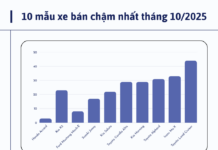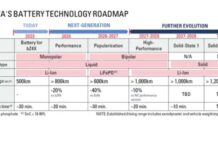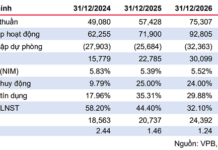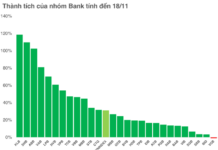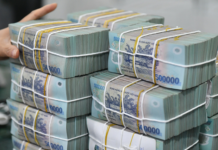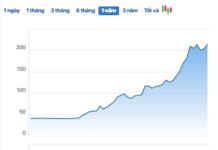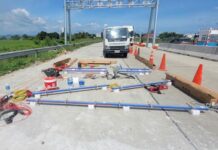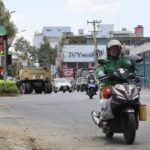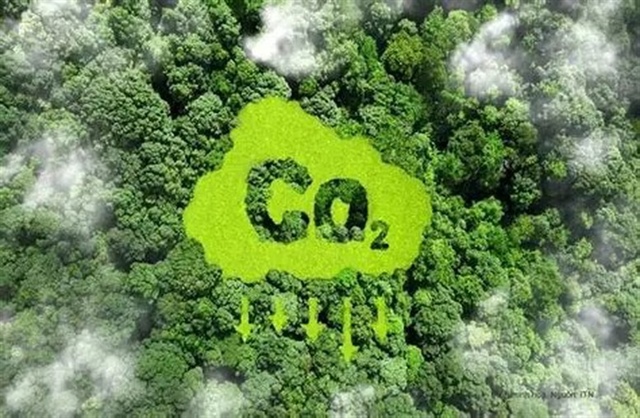
The carbon credit market incentivizes businesses to invest in clean technology while generating new financial streams for emission reduction activities. |
Carbon Credits: A Market-Based Mechanism for Emission Reduction
For Vietnam, establishing a carbon credit market is not only a requirement stemming from international commitments but also an opportunity to create resources for economic development, particularly in forestry—a sector with negative emissions and vast forest resources. However, experts emphasize the need for synchronized legal frameworks, financial mechanisms, and corporate capabilities to transform this potential into tangible benefits.
According to Assoc. Prof. Dr. Hoàng Văn Phụ, Chairman of the Scientific Council of the Institute of Economics and Development, “the carbon credit market is a pivotal economic tool in driving greenhouse gas emission reduction and climate change adaptation within a green growth model.”
At its core, this market involves the trading of CO₂ emission allowances based on the principle that “polluters must pay.” This mechanism efficiently allocates resources, encourages businesses to adopt clean technologies, and creates new financial streams for emission reduction activities.
Globally, numerous countries have successfully operated carbon markets, achieving significant results in transitioning to low-carbon economies.
In Vietnam, the foundational legal framework has been established, including: the Law on Environmental Protection 2020, which first recognized the domestic carbon market; Decree 06/2022/NĐ-CP outlining the roadmap and operational mechanisms for the carbon market; and Decision 232/QĐ-TTg (2025) approving the Carbon Market Development Scheme for 2025–2030.
The establishment of a carbon credit trading platform, slated for 2028, marks a significant component of Vietnam’s green financial market.
According to Dr. Trần Công Thắng, Director of the Institute of Strategy and Policy on Natural Resources and Environment, Vietnamese businesses face the imperative to adapt to global green standards. He stresses, “Green transition is a necessity, not an option.”
Major markets are increasingly tightening regulations on traceability, farming area codes, emission standards, and social responsibility. Non-compliance risks exclusion from supply chains.
Rapidly evolving global environmental policies compel businesses to invest in waste treatment technologies, energy efficiency, and fuel switching. “Delaying this transition will erode competitive advantages,” Dr. Thắng warns.
Overuse of chemicals and resources not only harms the environment but also damages product reputation. Initiatives like the 1 Million Hectares of High-Quality, Low-Emission Rice Project demonstrate that well-organized green transitions can yield economic benefits.
However, the primary barriers remain high technology investment costs, a lack of green financial mechanisms, and resistance to change.
Forestry: A Pillar for Forest Carbon Credits
With 14.79 million hectares of forests and a 42.02% forest cover, Vietnam ranks among the top 10 countries with the fastest-growing forest areas globally. This forms a critical foundation for developing forest carbon credits.
According to Mr. Trần Quang Bảo, Director of the Forestry Department (Ministry of Agriculture and Rural Development), “forestry is a sector with negative emissions, holding immense potential to participate in the carbon credit market.”
The benefits for forest guardians are clear: trading forest carbon credits provides legal income for forest protection, raises awareness of forests’ economic value, and fosters professional forest management practices.
Mr. Bảo highlights Vietnam’s receipt of USD 51.5 million from the Emission Reduction Payment Agreement (ERPA) in the North Central Region, funded by the World Bank, as a clear testament. The World Bank highly values Vietnam’s carbon credit transfers and seeks to replicate this model globally.
To ensure the carbon credit market operates transparently and efficiently, Mr. Trần Quang Bảo recommends refining legal frameworks, enhancing local and forest owner capacities, and intensifying training in measurement, reporting, verification (MRV), carbon credit calculation methods, and emission reduction project management.
Developing a synchronized data system is also crucial for early credit measurement and calculation. Vietnam needs to establish a forest carbon database, an internationally standardized MRV system, and inter-ministerial data connectivity.
Technical and financial resources from international organizations will accelerate Vietnam’s initial carbon market operations.
Many experts propose a carbon credit sandbox—a controlled testing mechanism—to safely pilot new models before widespread implementation. The government should also: promote green finance, connect businesses to international markets, and encourage banks to develop carbon credit packages.
Vietnam stands at a pivotal juncture. Early results from the ERPA project with the World Bank demonstrate significant potential and high feasibility. Once the carbon credit trading platform launches, the market will become more transparent, prices will reflect supply and demand, and businesses can actively participate.
The carbon credit market is not just a tool for emission reduction but also a driver for sustainable forestry development, improved livelihoods, and tangible contributions to the Net-zero 2050 goal.
Đỗ Hương
– 16:12 19/11/2025
Is Converting Gasoline Motorcycles to Electric a Truly Green Solution?
A Ho Chi Minh City-based business has proposed converting gasoline-powered motorbikes to electric ones, aiming to reduce emissions. However, the proposal has sparked mixed reactions and ongoing debate.
Ho Chi Minh City Authorities Mandate Completion of Electric Ride-Hailing Scheme by October 31
Ho Chi Minh City is accelerating its green transformation in transportation by increasing the adoption of electric vehicles, expanding charging station infrastructure, and preparing a comprehensive plan to transition all ride-hailing services to electric fleets.


